This is no secret that the current app marketplace is a very crowded one. Statistics show that there are over 2 million apps available in the Apple App Store, while Google Play Store houses more than 3 million apps. In the current space, it is difficult for a new app developer to make sure that his app stands out among the many others already present in the app store. How are you going to achieve high rankings and more downloads when your app has to compete with millions of other apps? Statistics show that over 65% of big brands and businesses own a mobile app. This puts extra pressure on any new app in the marketplace if they are competing in the same category. People tend to prefer apps that are established and have the backing of a recognizable and trustable brand. Building an app and launching it in the market is just the first step of your app journey as an app developer. You have to make sure that your app has high visibility and a large reach so that people can find it with ease. You want to make sure that not only is your app being downloaded, but it is also being used actively by your customers. This is why mobile app marketing has become such an important factor in an app’s success. Marketing will help your app gain more exposure, increase its visibility, and is likely to improve your conversion rates. Some multiple tactics and strategies that can be used to market your app. This guide will show you how you can market your mobile app using a website or a blog.
Table of Contents
The pre-launch stage
This stage consists of your marketing strategy that occurs before your app is launched. This stage will involve a lot of research on your part regarding multiple factors like your audience, competitors, product demand, raising product awareness, etc. There are two important things you need to research before you move on to the marketing phase of your app distribution. These include:
1. Understanding your audience
Understanding your audience is the most crucial step in app development and launch. Even before you start developing your app, you need to ask yourself the following questions: who is going to use your app? What is your target audience? How will people benefit from your app? Is your target audience too niche for your app to be successful? The target audience can be defined according to various factors such as age, gender, spending, and recreational habits. For example, gaming app developers develop apps that are targeted toward the younger audience, while business apps will be targeted toward more mature people who run businesses of various shapes and sizes. Many people also use behavioral characteristics to define their target audience; for example, a social media mobile app developer can target individuals who like spending a lot of their time on social media.
2. Knowing your competitors
In addition to understanding your audience, studying your competitors is also important. Competitors include applications that belong to the same category as your app. They serve a similar purpose and target the same audience as your app. Carefully studying the pros and cons of your competitors can prove to be highly beneficial while developing and marketing your app. See what your competitors are offering and what’s working for them. Also, take note of things that aren’t working for them. Try incorporating features and offering services that your competitors are lacking. If your competitor is offering their application on certain platforms or only in an exclusive region, take advantage of that gap in the marketplace. Make sure that your app stands out from your competitors. If your app is too similar to your competitors, it might be labeled by the public as a cheap imitator.
Marketing your app through a website
Once you are done with the research and development phase, it is now time to move forward with the marketing phase of your application. You don’t necessarily have to market your app after the development of your app is complete. Most app developers start the marketing phase while the app is still in active development. Not only does this bring more exposure to your app, but it also builds anticipation for the app’s release. There are multiple strategies you can use to market your app. For marketing your app through a website or a blog, you can take the following course of action:
Create your website and start promoting
In the current climate, having a business website is almost a necessity. Studies have shown that more than 70% of customers research a business or brand online before giving their products a try. Thus, creating a website to promote your app is a no-brainer. You can create a website on your own if it falls in your area of expertise. Otherwise, you can hire a professional to do the job for you. Keep in mind that creating and maintaining your website will cost you a decent amount of money. Therefore, it is necessary that you allocate a portion of your budget for this during your budget management and planning phase. You can create a general website, or you can give it the shape of a blog, depending on your preferences. Once your website is up and running, it is now time to start marketing your app. Make sure that your website has detailed explanations of your app and its features. You can write and publish blogs on your website regarding the importance of your app and how it will be beneficial to the users. You can upload promotional videos or demos on your website to show your app’s features and capabilities. Also, make sure to create a landing page so that interested users can quickly navigate to your app in the app store.
Use social media to build an online presence
With the amount of fierce competition, a newly developed app has to face nowadays, creating your own website/blog will not be enough. People need to know about your app’s existence before they can look it up online. This means promoting your app website through other channels. One of the best ways one can do this is by leveraging social media. Social media has become a big part of our daily lives. Most people spend most of their daily time on social media. Facebook alone has almost 3 billion users around the world. Thus, promoting your app and website on social media platforms is important. It can help you reach a global audience and bring more eyes to your app before the launch date. Create an account on all major platforms and make sure that your account is active and engaging. Post new content or short demo videos to promote and build hype for your app launch. Include a link to your website page so that people can learn more about your app by visiting it. Use relevant keywords in your website and social media posts, as this increases their availability through search.
SEO optimization
Studies have shown that a typical mobile app user finds an app of interest by going over to the app store, using the search feature, and typing the app’s name or a relevant keyword. For example, a user looking for a racing game may search it by typing the name of the game or “racing”. That’s how search engines work; they go through a pile of keywords and return the parent entity of those keywords. SEO optimization involves using keywords in your app description and your website that garner high traffic. The better SEO optimization your website has, the more it will pop up in the top search results. When people search for something, they tend to only look at the first 10 results or so. Thus, it is important that your website must be of a higher rank in search results. This is also the reason that most app developers create a website and start promoting their product way before release. Search engines take some time in picking up and then ranking new content. If you are not sure which keywords to use, you can use keyword search tools to do the job for you.
Email marketing
Email marketing is another effective way to boost traffic to your website and app page. Once you have created your website, you can collect emails from people that are interested in your app. You can then use emails to keep people updated on the development of your app. You can inform them about app updates, new features, release dates etc. Email marketing can be used to gain subscribers even before your app has launched. This means by the time you have launched your app, you will already have an inbuilt audience. Make sure to optimize your emails for mobile phones, as most people access their emails through phones these days.
Outreach initiatives
Another way to advertise your app is by contacting influencers, publications, and bloggers for promotion. Posting your apps on the app directory sites can also help you gain more potential customers. Getting your app reviewed by different sites or blogs will also convince users to download and try your app. You can send out your app to bloggers and reviewers before your launch date so that reviews could be published early. Make sure to provide reviewers links to your website and app page so that regular blog readers can access them if they are interested.
Conclusion
In this day and age, creating a website for your business, product, app, etc. is a must. The website must be created before the launch of the app for promotion and SEO optimization. Make sure that your website contains all the information regarding your app, plus a link to the app page in the app store.



